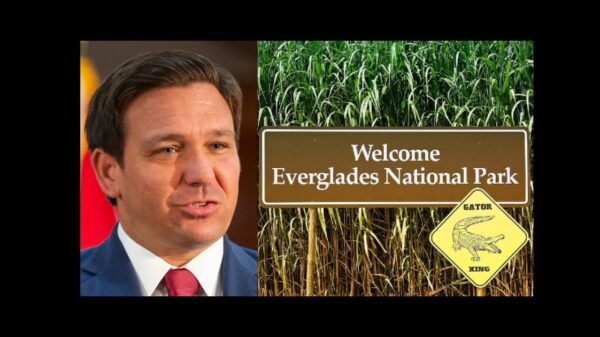Last week, Publix and the National Audubon Society announced the results of the first phase of their collaboration in the Corkscrew Swamp Sanctuary of the western Everglades.
To date, 200 acres of invasive willows and other plants have been removed from the Sanctuary in an effort to restore the natural landscape. According to a third-party evaluation, the phase one removal will allow more than 44 million gallons of water per year to be returned to the wetland’s ecosystem, the equivalent of nearly 67 Olympic-size swimming pools.
In addition, Audubon Florida has reported evidence of wildlife in the restored area. Cameras set up in the Sanctuary and drones flown overhead have captured images of two male deer locking horns and a black bear in an area that was once too dense to move through.
“We’re excited to see such positive improvements after our first phase of work in Corkscrew Swamp Sanctuary,” said Publix Director of Environmental and Sustainability Programs Michael Hewett. “During this year’s rainy season, more water will be absorbed into the aquifer instead of being captured and held by invasive trees and plants. As a result, the aquifer will be recharged, and Floridians will have access to additional fresh drinking water.”
To prevent regrowth of the willows and other plants removed in the first phase, follow-up treatments began in September 2021 and will continue for another two to five years. The second phase, expected to begin in May, involves removing invasive willows and other plants from an additional 200 acres.
As part of the company’s commitment to sustainability, Publix has embarked upon long-term collaborations to support freshwater restoration in the state of Florida. Since 2016, Publix has supported the Arbor Day Foundation in planting 605,000 trees in three damaged Florida watersheds. According to the Arbor Day Foundation, over the next 50 years, these trees are estimated to reduce rainwater runoff by intercepting more than 66 billion gallons of rainfall. When runoff is reduced, more water soaks into the ground and, ultimately, into the aquifers supplying Florida residents with clean drinking water. Additionally, the trees are estimated to absorb more than 182,000 metric tons of net carbon dioxide during the same period.
In 2021, Publix donated funds to remove invasive trees and plants from portions of the Florida Everglades. These trees and plants disrupt Florida’s natural water cycle by using standing water from rainfall before it can seep into the underground aquifers that provide 8 million South Florida residents with their daily supply of drinking water. A portion of the $2 million donation is being used by the National Audubon Society for a five-year project to remove invasive willows and other plants from approximately 500 acres in Corkscrew Swamp Sanctuary in the western Everglades. The National Park Foundation is using its portion of the donation on a three-year effort to remove and control invasive Australian pine trees in approximately 500 acres of the saline glades region in the eastern portion of Everglades National Park.



















